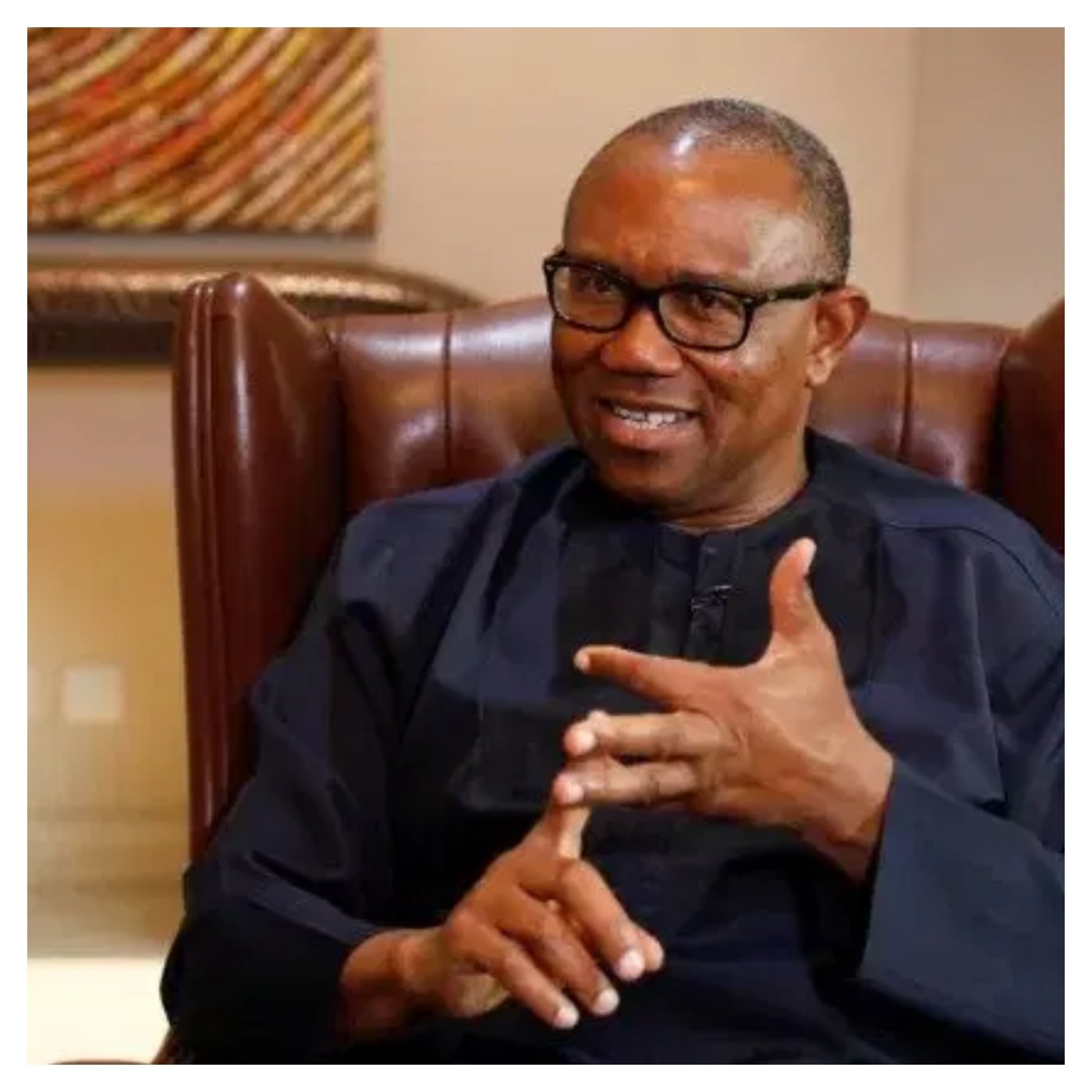
Peter Obi Pledges to Revamp Labour Party's Candidate Selection Process, Ensures Only Dedicated Leaders Will Run for Elections

In a decisive move that could reshape the political landscape of Nigeria, Peter Obi, the presidential candidate of the Labour Party during the 2023 general elections, has announced a bold new policy aimed at transforming the party’s candidate selection process. During a recent statement, Obi made it clear that only individuals who are deeply committed to the party’s ideology and vision will be allowed to run for any future elections under the Labour Party’s banner. He declared that "passers-by" — a reference to opportunistic politicians who show little loyalty or dedication to the party's values — will no longer have a place within the Labour Party's electoral line-up.
This announcement marks a significant shift from the past, where several candidates with questionable dedication to the party or its causes were nominated for elections. In the political context of Nigeria, "passers-by" often refers to politicians who jump from one party to another, seeking personal gain rather than working towards the collective good. Obi’s statement was aimed at removing the influence of such figures, ensuring that the party’s candidates are truly aligned with its progressive, reformist agenda.
Peter Obi, a former governor of Anambra State, has long been regarded as a politician with a track record of integrity and a dedication to changing Nigeria’s political system for the better. His performance during the 2023 presidential race was marked by a significant rise in support from the youth and urban voters who were disillusioned by the establishment politics of the major parties. Despite not winning the presidency, Obi's message resonated with millions of Nigerians who were eager for a shift away from the traditional political elite. His platform of good governance, anti-corruption, and economic reform garnered widespread attention, particularly among the youth demographic, which is often sidelined in Nigerian politics.
However, Obi is aware that the challenges of changing Nigeria’s political system do not stop at campaigning; they extend to ensuring that the Labour Party remains strong, credible, and committed to its principles. His latest declaration comes as part of a broader effort to solidify the Labour Party’s future and avoid the pitfalls that have plagued other political parties in Nigeria. One of these pitfalls is the tendency for parties to field candidates who are more interested in winning elections than in serving the people. By emphasizing that only dedicated individuals will be chosen to represent the Labour Party, Obi is signaling his intention to build a stronger, more principled opposition force in Nigerian politics.
In his statement, Obi acknowledged that the Labour Party has always struggled with a lack of deep-rooted political loyalty, especially when compared to the two dominant parties in the country: the All Progressives Congress (APC) and the People’s Democratic Party (PDP). Both of these parties have been accused of promoting career politicians who prioritize personal ambition over public service. Obi’s vision for the Labour Party, however, is one that rejects this notion, placing the values of service, integrity, and commitment at the forefront of its candidate selection process.
The declaration has been met with mixed reactions across the political spectrum. Supporters of Obi have applauded the move, believing that it is a necessary step to ensure that the Labour Party remains a genuine alternative to the political establishment. Many have pointed out that the rise of "passers-by" within Nigerian politics has contributed to the country’s deep political stagnation, where party loyalty and political ideology often take a backseat to personal ambitions and opportunism. For these supporters, Obi’s message is a welcome call for a return to values-based politics that serves the people, not the politicians.
On the other hand, critics argue that the new policy could create challenges for the Labour Party in its quest to attract a broad base of support. In Nigeria’s often unpredictable and volatile political environment, alliances and party affiliations are fluid, and some see Obi’s hardline stance as a potential barrier to building the kind of broad coalition that could be necessary to secure victories in future elections. These critics believe that a more inclusive approach might be needed to attract diverse candidates who can represent various segments of the Nigerian population, particularly in states or regions where the Labour Party has not historically had strong support.
Nevertheless, Obi’s position remains firm. He believes that only those who are genuinely committed to the Labour Party’s ideals should represent it in elections. This commitment to integrity, he argues, will ultimately strengthen the party and make it a more credible alternative to the APC and PDP. Obi’s message is clear: the time for empty political posturing is over, and the Labour Party will no longer tolerate candidates who are only interested in using the party as a stepping stone for personal gain.
For many Nigerians, Obi’s decision to take a stand against "passers-by" reflects his broader vision of transforming the political culture of the country. The Nigerian political system has long been criticized for being plagued by corruption, patronage, and a lack of accountability. By ensuring that only dedicated individuals are selected as candidates, Obi is attempting to change the culture of Nigerian politics, placing greater emphasis on merit, ideology, and service to the public. If successful, this could serve as a model for other parties and politicians in the country, pushing for a more values-driven political culture that focuses on the needs of the people rather than the whims of opportunistic politicians.
Ultimately, Peter Obi’s announcement reflects his unwavering commitment to reshaping Nigerian politics. By emphasizing the need for true loyalty and dedication to the Labour Party’s vision, Obi is signaling his intent to build a party that stands apart from the established political elites. While the road ahead may be challenging, Obi’s leadership and the growing support for his ideas suggest that the Labour Party’s future could be bright — provided it remains true to its principles and continues to prioritize the people over political expediency.
As the 2023 elections recede into history, the focus shifts to the future of Nigerian politics, and Peter Obi’s Labour Party is set to play a pivotal role in the years to come. With this bold move, Obi is positioning the party as a force for reform, ensuring that only the most dedicated, principled individuals will carry its banner into the next election cycle. Whether this vision will become a reality or face resistance remains to be seen, but one thing is clear: the Labour Party, under Peter Obi’s leadership, is determined to create a new political order — one that is built on the values of service, commitment, and integrity.


